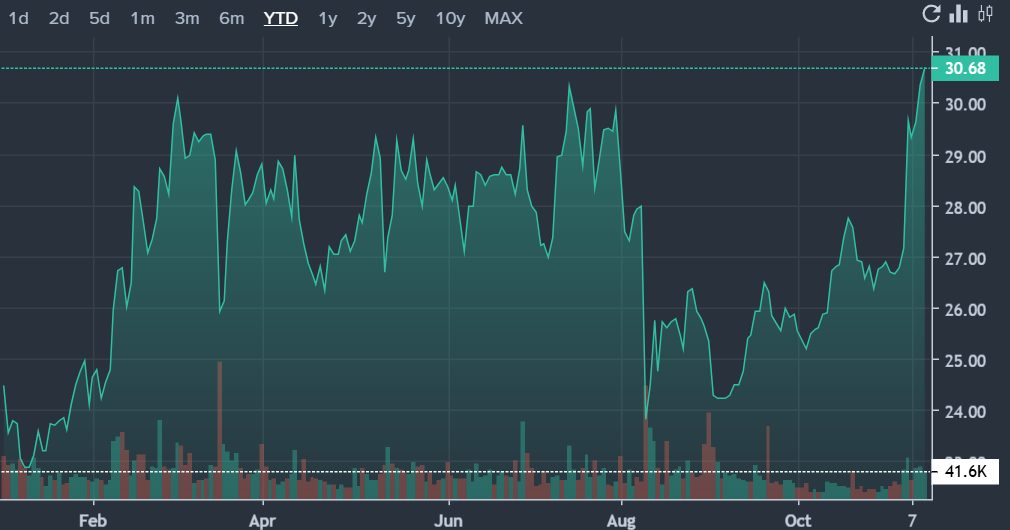So the election is finally behind us.
Some folks are celebrating, others are devastated, but most Americans simply got up and went about their business.
Having been in this industry since the Reagan-Mondale landslide of 1984, I have seen this pattern play out many times.
Markets tend to get a bit shaky around elections, then generally work their way back to historical return patterns over the following year.
This GOP sweep should create a favorable environment for business, particularly for smaller companies that have been struggling with excessive regulations, inflation, and high interest rates.
We can debate all day whether tariffs will drive inflation or if improved business conditions will push wages higher – but let us focus on what we can see right now.
The reality is that small-cap stocks have significantly underperformed over the last decade. The S&P 500 has delivered about 14% compared to just 8.8% for the Russell 2000.
Large companies had distinct advantages – they could leverage their balance sheets at essentially zero cost, navigate regulations more easily, and access foreign markets in ways smaller companies simply could not match.
If we are honest, we must admit we really degraded the quality of the Russell 2000.
Those SPAC IPO waves we saw in 2020 and 2021 brought us companies that probably should not have been public in the first place, many running out of garages with no profits and, frankly, no real prospect of making money.
Add in the clinical-stage biotech's – which often serve as wealth transfer mechanisms from optimistic investors to fund wild laboratory experiments – and you have got 40% of the index that cannot generate profits.
Add in the fact that indexers favored large companies over small and you create a situation where good companies got sold as hard as garbage companies.
It has been a classic case of the throwing the baby out with the bathwater.
In looking at small companies, I focus on skin in the game.
If there is victory, we all thrilled.
If there is defeat, we all feel pain.
The Romans understood this concept perfectly – they made architects stand under their arches while the scaffolding was removed. Now that is accountability.
Shakespeare captured it too, with Shylock demanding his pound of flesh as collateral in “The Merchant of Venice.”
I want executives who will prosper when shareholders prosper, and feel more pain than investors if things go wrong.
This brings us to Karat Packaging (KRT). Here is a company that exemplifies skin in the game – the co-founder CEO owns 34%, and the co-founder VP of Manufacturing holds 30%. They started this business in their twenties back in 2000, and they have built it into a remarkably efficient cash flow machine.

Is it an exciting business? Not at all.
They make to-go containers, coffee cups, to-go boxes, napkins, those little French fry holders – essentially everything disposable in restaurants.
They have developed an eco-friendly line for the environmentally conscious, and they have even carved out a nice niche making those tapioca pearls for boba tea. The beauty is that everything they make gets consumed or disposed of, creating consistent repeat business.
Their operations are strategically positioned along the coasts and around Chicago, right where their restaurant customers are concentrated. The balance sheet is exceptionally strong and is what I would call fortress-level.
They are paying a solid dividend above 4%, recently increased by 14%, and should yield over 5% going forward.
The limited analyst coverage suggests big earnings increases over the next year that should lead to a higher stock price.
Even if the new President and Congress do not succeed beyond our wildest dreams, Karat Packaging should do just fine.
Not even the presence of a new Food Czar in Washington can change the fact that Americans eat out a lot. Something on the order of 60% of all Americans get takeout at least once a week.
The company co-founders are both in their mid-50s and have to have considered that selling this company is the best way to maximize their wealth at some point in the not-too-distant future.
For a private equity firm or strategic buyer, it offers attractive cash flows, recession resistance, and clear synergy opportunities with other PE-backed companies that are in the restaurant business.
There is more than enough free cash flow to handle the addition of some leverage to juice returns.
There are several larger restaurant supply companies that could take advantage of the company’s distribution network around the coastal areas of the United States and Midwestern outpost near Chicago.
While the market obsesses over the latest trending stocks or election implications, I am looking at a fundamentally sound company that makes products we use every day, pays a growing dividend, and might well attract acquisition interest at a premium. That is what I call an under-the-radar opportunity. But with substantial insider ownership, a growing dividend, and a proven business model, Karat Packaging represents the kind of small-cap company that can succeed regardless of the political environment. In my book, that is a genuine value opportunity worth considering.
© 2025 Benzinga.com. Benzinga does not provide investment advice. All rights reserved.
Trade confidently with insights and alerts from analyst ratings, free reports and breaking news that affects the stocks you care about.